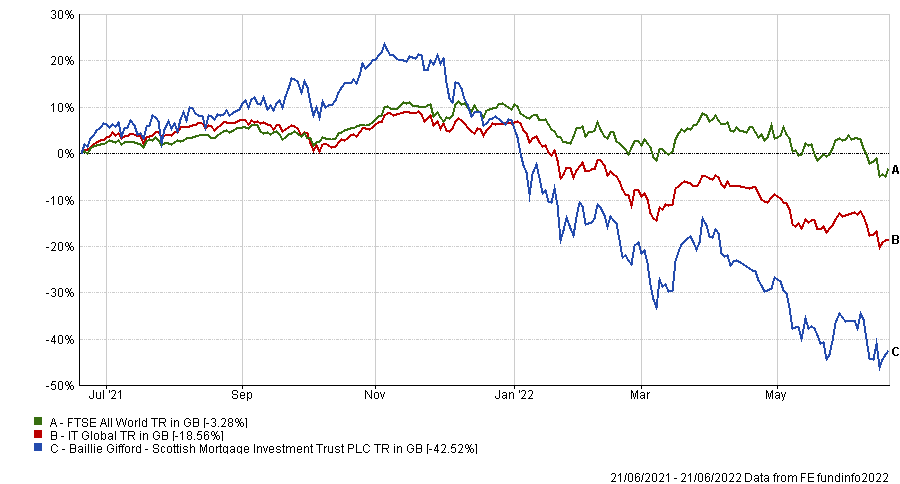Investment trusts have a number of differing characteristics from open-ended funds that make them appealing, such as the ability to use gearing (leverage), their liquidity (due to being closed-ended) and their independence (through their board).
However, one that has come to the fore in recent years has been their ability to buy into private companies.
The fallacy that open-ended funds could do this was debunked in 2019 with the collapse of Woodford Investment Management, as investors withdrew their cash more quickly than former manager Neil Woodford could sell the unlisted holdings in his Woodford Equity Income portfolio.
That trusts are listed on the stock market, meaning investors can almost certainly sell – they may not like the price, but at a certain point there should theoretically be buyer – means that the asset class is more liquid.
Yet Rob Burgeman, senior investment manager at wealth manager Brewin Dolphin, said that it remains a complex balance, with the latest news that Scottish Mortgage is being pushed over its limit for unquoted assets “a stark reminder that the policies and rules investment trusts set themselves can make a material difference to how they run”.
“Scottish Mortgage had set itself a 30% limit for exposure to junior companies which, as many of the larger stocks it holds have dropped in value, has been exceeded,” he said.
Total return of trust vs sector and benchmark over 1yr

Source: FE Analytics
The rationale for holding these assets is obvious. They are generally smaller, faster-growing businesses that can make a windfall when they are taken public.
However, they also tend to require more investment to grow and are often lossmaking.
“When times get tough in the quoted market, you can have a rights issue or place some shares to raise funds. Unquoted companies tend to go into a state of denial, as they do not want to raise fresh funds at a lower price than their last fundraising for fear of diluting existing shareholders; that is, until their hand is forced,” said Burgeman.
“If you are a holder, you then either have to put up or shut up. If you do not participate, you are simply diluted to a fraction of your previous holding.”
This is a potential risk for Scottish Mortgage, he argued, which could be at risk if it remains up against its own imposed exposure limits for too long.
One way out is through gearing, he noted, although this “can be a blessing and a curse”, as taking on debt to invest will both amplify losses in downturns as well as gains in rising markets.
“This is doubly true for trusts that invest solely or substantially in unquoted companies,” said Burgeman, pointing to examples from both the 2000 dotcom bubble (Candover, SVG Investments, and Partners Global Opportunities) and 2008 financial crash (Pantheon International).
While the latter has since recovered, he said that there is the potential that the market is only “mid-rout” in the current tech sell-off.
This could affect Scottish Mortgage, he argued, which may be at risk of dilution unless it takes on gearing, which could in turn magnify the effect of any losses.
He also highlighted the Chrysalis investment trust, which invests in a portfolio of later-stage private companies. He argued that these businesses are harder to trade and therefore there can be a considerable delay between the desire to sell and the eventual disposal. “This can, in turn, lead to liquidity crunches,” Burgeman said.
The Brewin Dolphin senior investment manager also highlighted Molten Ventures (formerly Draper Esprit), which is a similar strategy to Chrysalis above, with more of a focus on tech.
“It, too, has similar issues, with the added kicker that it focuses on a sector deeply out of favour at the moment, in which values are particularly affected by higher interest rates,” he said.
Lastly, defensive asset RIT Capital Partners is an example of a trust that may be better positioned in the current environment. The trust holds unquoted companies among other assets, although its allocation to these firms currently stands at 41% through a mixture of private funds and companies.
“Clearly the Rothschilds are no fools and they recognise the superior returns that unquoted or private companies can generate over time, particularly compared with their quoted equivalents. This is not, however, a risk-free trade,” he said.
“These excess returns come at the expense of greater volatility and lower liquidity, making investing in unquoted companies a bit of a white-knuckle ride at times – especially in a worsening economic environment.”





